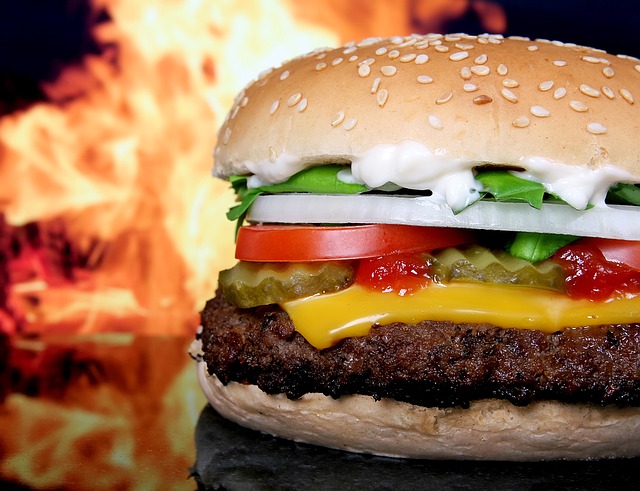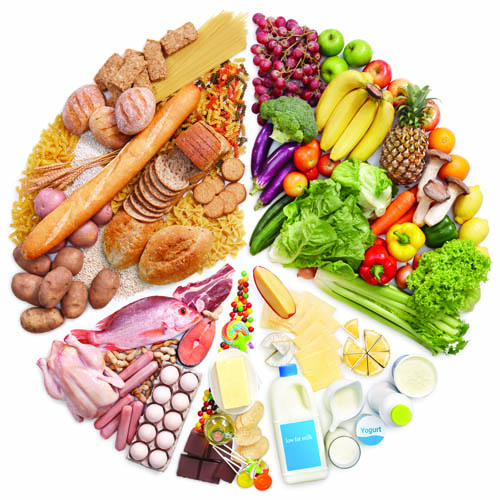Does this sound familiar… You put on a few kilos. It just crept up on you.
Looking for a way to take the kilos off, you come across a diet that tells you that you can eat anything you want.
You’ll lose kilos fast with virtually no effort.
Not only that, but everyone is doing it! There’s “a new revolution” going on. A new way to eat. And you’re being left behind.
It sounds like the dream diet. A diet where you don’t really have to alter how you eat too much to lose weight. Perfect!
And while it’s a similar message that many diets deliver to sell their book or plan, it’s almost exactly how the Atkins Diet was marketed.
On the cover of Dr. Atkins’ book we’re told that we can “enjoy a cheeseburger when you’re hungry.” Amazing results are promised in just 14 days.

While Dr. Atkins isn’t the only high fat, high protein, low carbohydrate diet, it’s probably the most well-known. Other high fat, high protein, low carbohydrate diets include the Beverley Hill’s diet, Protein Power, the Carbohydrate Addict’s Diet, the Scarsdale Diet, Charles Hunt Diet Evolution, Quick Weight-Loss Diet, the South Beach Diet, the Dukan Diet, and the Paleo Diet.
Do high fat, high protein, low carbohydrate diets work?
That’s the questions nutrition expert John Robbins addresses in his book, The Food Revolution, by examining specifically the Atkins Diet – how it works and whether it’s good for you…
Dr. Atkins diet is based on ketosis. Atkins writes…
“Ketosis is an indicator used at the Atkins Center as a marker for whether a person is staying on the diet…The Atkins diet is a lifelong nutritional philosophy…The important thing is you are in ketosis.”
So what exactly is ketosis? Robbins writes that “ketosis occurs when there is an imbalance of fat metabolism, such as what occurs in diabetes and starvation.”
What then happens is that the body begins to metabolise muscle tissue instead of fat.
Nowhere in Atkins Diet literature does it list the consequences of extended ketosis which includes muscle breakdown, nausea, dehydration, headaches, light-headedness, irritability, bad breath, kidney problems, and the increased risk of heart disease.
A potential consequence of extended ketosis in pregnancy is fetal abnormality, or death. For a diabetic, extended ketosis could result in death.
Here’s what the American Institute of Cancer Research wrote about the Atkins Diet…
“Atkins’ diet can lead to the kind of rapid weight fluctuations that adversely affect the heart. Moreover, the breakdown of fatty acids that occurs during ketosis may also increase the risk of heart disease. One of the basic tenets of Atkins’ diet is that sugar causes cancer. Such misleading pronouncements are essentially scare tactics, meant to direct the dieter towards foods on the Atkins plan. Finally, nothing about this plan encourages the dieter to learn some very basic weight management strategies like portion control and serving sizes, let alone develop the skills necessary for a lifetime of balanced nutrition.”
Atkins once claimed that his diet “will correct most of the risk factors for heart disease.”
A Journal of the American Dietetic Association found the exact opposite. Bad cholesterol (LDL) increased and good cholesterol (HDL) decreased in people who had been on the Atkins diet for 12 weeks increasing their risk of having a heart attack.
Not a single study has been published that backs up Atkins’ “my diet is good for the heart” claim. In his lifetime, Atkins never published a single study in a medical journal.
The one study that he funded about his diet found that it increased constipation and developed bad breath in approximately 70% and 65% of study subjects.
In his book, two foods that are recommended and regularly appear in recipes are pork rinds and sausages.
Dean Ornish, M.D. Professor of Medicine at the University of California says, “Telling people that pork rinds and sausages are good for you is an appealing way to sell books, but it’s irresponsible and it’s dangerous for people who follow this advice.”
James Anderson, M.D. Professor of Medicine and Clinical Nutrition at the University of Kentucky School of Medicine had this to say about The Atkins Diet…
“People lose weight, at least in the short term. But this is absolutely the worst diet you could imagine for long-term obesity, heart disease and some forms of cancer. If you want to find one diet to ruin your health, you couldn’t find one worse than Atkins.”
Robert Atkins died on April 17, 2003 at the age of 72. He died overweight. Although this is disputed by his widow and other Atkins advocates if you search online (www.thesmokinggun.com) for his death report on the “Report of External Examination” page it lists his weight as 258 lbs (117 kg). Dr. Atkins was 6 feet (1.82 metres) tall, making him technically obese when he died. His widow refused to allow an autopsy.
Since its release Dr. Atkins’ Diet Revolution book has sold millions of copies. Since its release in 1992 the updated version Dr. Atkins’ New Diet Revolution has sold over 15 million copies worldwide.
On July 31, 2005, the Atkins Nutritional company, due to a huge decline in sales, filed for bankruptcy protection. They are still in operation, but have yet to retain the popularity they once enjoyed.
The point of this article is that diets, such as the Atkins diet, come and go. For life-long, sustainable results that optimise your health, you need to look to a science-based, independently research backed approach to your nutrition and exercise. This is our specialty at Studioz Personal Training.

If you want to take control of your nutrition forever, contact us for a FREE consultation on 0421 287 107 or StudiozPT@gmail.com.
